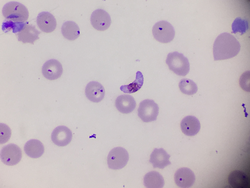
Submit your research
Start your submission and get more impact for your research by publishing with us.

Start your submission and get more impact for your research by publishing with us.

Ready to publish? Check out our author guidelines for everything you need to know about submission, from choosing a journal and section to preparing your manuscript.

Reviewing a manuscript? See our editorial guidelines for everything you need to know about Frontiers’ peer review process.

Our efficient and rigorous peer review means you’ll get a decision on your manuscript in just 77 days.

Article processing charges (APCs) apply to articles that are accepted for publication by our external editors, following rigorous peer review.

Stay up to date with this trending article on RNA editing's role in DNA repair.

Featuring recent ebook published in Rare Diseases Research and Diagnosis in Low - and Middle-Income Countries.

Seeking contributions for Research Topic in Genomic Methods and Applications for Malaria Surveillance.

Thank you to everyone who visited us at the American Society of Human Genetics meeting! It was a pleasure connecting with you all.

Seeking contributions to our new published collection in "Nutrigenetics and Nutrigenomics in Livestock". Submit your research now!

Stanley Manne Children’s Research Institute, Ann & Robert H. Lurie Children's Hospital of Chicago
Chicago, United States
Specialty Chief Editor
Genetic Disorders

Institute of Biomedicine of Valencia, Spanish National Research Council (CSIC)
Valencia, Spain
Specialty Chief Editor
Genetics of Common and Rare Diseases

McGill University Health Centre
Montreal, Canada
Associate Editor
Genetics of Common and Rare Diseases

United Arab Emirates University
Al-Ain, United Arab Emirates
Associate Editor
Genetics of Common and Rare Diseases